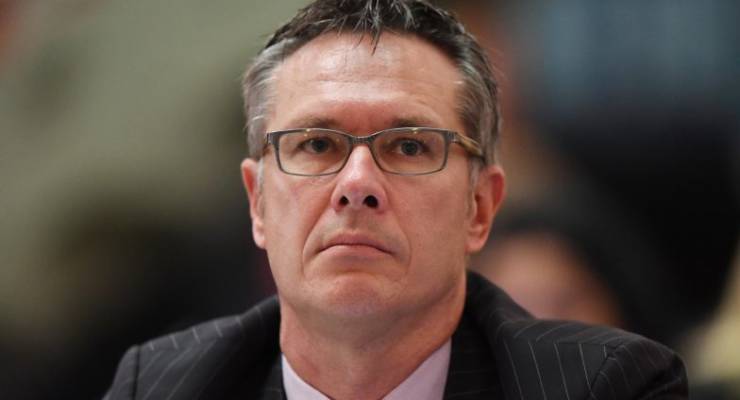
With the all important March quarter wage price index (WPI) out tomorrow at 11.30am, a senior Reserve Bank official has warned there’s a chance that unemployment will have to fall further than the central bank has forecast — 5.25% — from the middle of next year onwards, in order to get wage rises above the 2% level as measured by the WPI.
The March quarter WPI is expected to come in around 2.1%, unchanged from the December reading. If that happens, it will mean the index will undershoot the government’s budget forecast of 2.5% (which was cut from the very optimistic 2.75% a year ago).
Speaking to a finance conference in Sydney today, RBA deputy governor Guy Debelle said that recent work at the bank has found that more and more wage settlements were “bunching” around 2% over the past five years or so.
The experience of other countries with labour markets closer to full capacity than Australia’s is that wages growth may remain lower than historical experience would suggest. In Australia, 2% seems to have become the focal point for wage outcomes, compared with 3–4 per cent in the past.
Work done at the Bank shows the shift of the distribution of wages growth to the left and a bunching of wage outcomes around 2 per cent over the past five years or so. As I said earlier, while there are signs of wage pressure emerging, they remain localised for now (see graph below).
“There is a risk that it may take a lower unemployment rate than we currently expect to generate a sustained move higher than the 2% focal point evident in many wage outcomes today,” he warned.
A reading around 2% will support Debelle’s contention and add to the growing view that the underpinnings of the budget are overly optimistic, even though business conditions and confidence are at record or near-record levels according to business surveys.








Does unemployed include only those with less than 1 hour’s paid work a week?
Is the change in definition where the breakdown has occurred in the statistical relationship with wages?
Actually, wages will rise if and only if workers take strike action like we haven’t seen for 25 years.
Damn right. Unless workers unite, join a union and take action the greedy bosses will continue to short-change them.
That Accord of the 80s when HawKeating sold the ALP’s birthright for a mess of potage of noxious neolib mostrums.
… not forgetting ‘noxious neolib nostrums‘.
Economists seem to have not fully considered the impact of ‘off-shoring’ and globalisation on labour and wage pressures. A shortage of labour, or a demand for higher wages, is met by labour hire business and sourcing product from overseas. Few Australian businesses can unilaterally increase prices, and this seems to have put a ‘cap’ on employment growth (hours worked) and wage pressure.